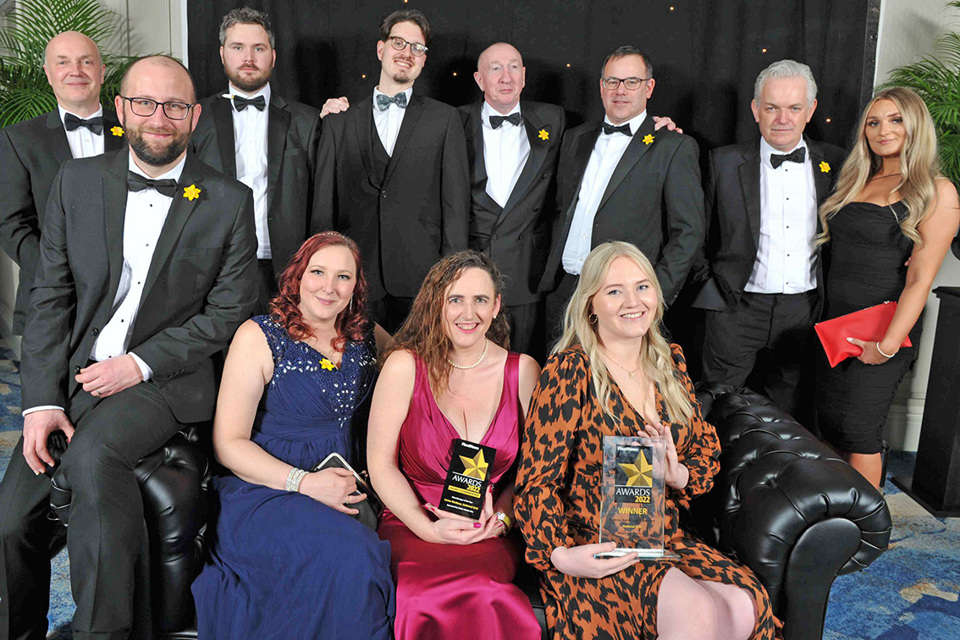Wellbeing and Diversity & Inclusion in Fleet is an award introduced for 2022 that recognises the companies which look after their car and van drivers in the best way possible.
The inaugural Fleet News Award was presented to National Grid fleet manager Lorna McAtear, who has developed a culture of diversity, inclusion and staff wellbeing both in her team and among her drivers, ensuring they link in with the wider business ethos.
The fleet team’s initiatives form part of National Grid’s own comprehensive Diversity, Equality and Inclusion Policy.
McAtear, who has been in the role for two years, says one of the keys to diversity is “respect for and appreciation of differences in ethnicity, gender,age, national origin, disability, sexual orientation, education, religion and more”.
Fleet News: Do you think there is a lack of diversity in the fleet industry?
Lorna McAtear: We’ve still got areas that are woefully inadequate. There are meetings I go into, and I will walk in a room of about 40 people and I’m still the only female. I don’t think that’s intentional. I just think we haven’t managed to get enough people to understand you can move into fleet.
We are seeing more females and more younger people coming into the industry and I think that’s a reflection of the industry moving into areas where it needs different skill sets, such as sustainability.
Wellbeing and Diversity & Inclusion in Fleet is an award introduced for 2022 that recognises the companies which look after their car and van drivers in the best way possible.
The inaugural Fleet News Award was presented to National Grid fleet manager Lorna McAtear, who has developed a culture of diversity, inclusion and staff wellbeing both in her team and among her drivers, ensuring they link in with the wider business ethos.
The fleet team’s initiatives form part of National Grid’s own comprehensive Diversity, Equality and Inclusion Policy.
McAtear, who has been in the role for two years, says one of the keys to diversity is “respect for and appreciation of differences in ethnicity, gender,age, national origin, disability, sexual orientation, education, religion and more”.
Fleet News: Do you think there is a lack of diversity in the fleet industry?
Lorna McAtear: We’ve still got areas that are woefully inadequate. There are meetings I go into, and I will walk in a room of about 40 people and I’m still the only female. I don’t think that’s intentional. I just think we haven’t managed to get enough people to understand you can move into fleet.
We are seeing more females and more younger people coming into the industry and I think that’s a reflection of the industry moving into areas where it needs different skill sets, such as sustainability.
Fleet managers also very often have to be a counsellor, they have to sit down and advise, they also need to have enough emotional intelligence to be able to handhold drivers that are really struggling.
FN: Driver wellbeing has become a larger focus in recent years, do you think the problem is bigger than people have realised?
LMcA: I do, and I think you could look at that as behaviourally cultural as well. As a truck driver you might not tell somebody that you’re suffering because it’s not the macho thing to do. I think the plight of Covid and all of the challenges people have had has made them braver; they’ve been more forthcoming about the challenges they’ve had.
It is seriously hard work being away from a family overnight and, even if you’re not an HGV driver doing that, you might be a company car employee that’s doing a project and you’re working away for a week. You’ve all been away for work, delivering your product, or your projects, and you still need that support when you’re doing it.
Covid has made people much more aware of drivers because we needed those deliveries. We became much more aware of utility sectors because we still needed the power and the water and the gas and the telephones, and everything else you need to keep running the country.
FN: What support do fleet managers need to help them improve the wellbeing of their drivers and to improve diversity and inclusion?
LMcA: You have to have that whole cultural ethos and I think at National Grid we’re all extremely lucky because that ethos is there. I haven’t had to come up with a fleet policy in order to do diversity and wellbeing because the company is already on board with it.
If your company doesn’t have a culture that has that at the forefront of its agenda, then I think you are going to struggle.
FN: Does fleet have any specific wellbeing or diversity and inclusion challenges when compared with other parts of a business?
LMcA: You don’t see your drivers all the time, often they are on their own. So, they’re lone workers. How do you make sure you’re in touch with that person?
We’ve got the constantly changing regulations and updates, too. I think people underestimate sometimes when your drivers are out and about there’s more stress, such as when you’re going into a clean air zone, or remembering to pay the Dart Charge. The newest challenge for us is the cost of living because that’s not just the company car drivers, it’s anyone expected to commute into the office now. Costs have gone up so much that driving just adds a new element to everything you’re doing.
Login to continue reading.
This article is premium content. To view, please register for free or sign in to read it.





















Login to comment
Comments
No comments have been made yet.